The spread of COVID-19 and extreme weather, such as heavy rainfall, are greatly impacting economic activities and daily lives. Worse yet, if temperatures continue to rise, more infectious diseases are predicted to emerge. Nowadays, it has become necessary to push the idea that human lives precede economic priorities. Under these circumstances, some countries and local governments have already begun moving towards a green recovery, with decarbonisation in mind.
The European Commission unveiled the European Green Deal in December 2019, motivated to turn environmental and climate challenges in policy areas into opportunities. It showed specific measures, such as raising the 2030 greenhouse gas reduction target, implementing necessary legislation, allocating funding, and showing steps that could be taken. Each member of the European Union is implementing green recovery measures with climate change countermeasures in mind.
If the current trend of greenhouse gas emissions continues, we will see the average global temperature rise by 1.5 degrees as early as 2030. We need to respond to climate change urgently, but we face a major challenge when trying to promote decarbonisation in the current situation. The impact of the COVID-19 crisis is being felt across the whole world, and we must keep this in mind when promoting decarbonisation under the name of green recovery.
IGES serves as the Secretariat for the International Research Network for Low Carbon Societies (LCS-RNet), and has facilitated discussions on how to make transitions towards realising low-carbon and decarbonised societies at its annual meetings held 11 times in the past to date.
At this session, together with international experts involved in decarbonisation research (in Japan, France, Germany, Italy, and the UK), we will focus on the economic and social impacts caused by COVID-19 crisis and climate change, such as transition in industry sector, employment, and finance. We will then discuss the role of science, by exchanging views on how we can respond to the on-going crisis in a timely and appropriate manner, and how science can contribute to the re-design of our societies in the long run.
Head of Center for Social and Environmental Systems Research, National Institute for Environmental Studies
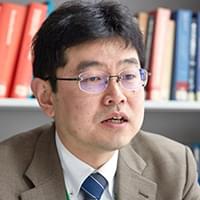
Toshihiko Masui
Head of Center for Social and Environmental Systems Research, National Institute for Environmental Studies
Toshihiko Masui is Head of Center for Social and Environmental Systems Research, National Institute for Environmental Studies (NIES), and he is also Visiting Professor of School of Engineering, Tokyo Institute of Technology. He got his PhD from Osaka University in 1997. He is in charge of development of Asia-Pacific Integrated Model (AIM) in order to assess climate mitigation policies and its application for sustainable society including low carbon development. He is also the member of some committees of the Central Environment Council, and the lead author of IPCC AR6 WG3 (Chapter 4).
Emeritus Research Director, CNRS / Former Director, CIRED
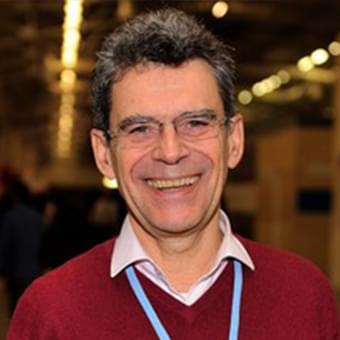
Jean-Charles Hourcade
Emeritus Research Director, CNRS / Former Director, CIRED
Jean-Charles Hourcade is an economist, former director of CIRED (France). A specialist in energy-environment issues, he is among the first social science researchers to take an interest in climate change issues, on which he directs the work of his team. He is the author of dozens of articles in academic journals, focusing on economics and climate change. Strongly involved in multiple areas of expertise at the national and international level, he has been, since 1995, lead author and coordinating lead author of several chapters of the successive reports of Working Group III of the Intergovernmental Panel on Climate Change (IPCC).
Director, Future Energy and Industry Systems, Wuppertal Institute for Climate, Environment and Energy
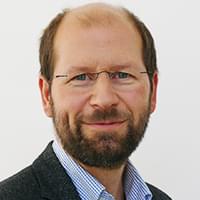
Stefan Lechtenböhmer
Director, Future Energy and Industry Systems, Wuppertal Institute for Climate, Environment and Energy
Prof. Dr. Stefan Lechtenböhmer [male] is Director of the Division Future Energy and Industry Systems of the Wuppertal Institute for Climate, Environment and Energy, Wuppertal, Germany and holds an adjunct professorship in Environmental and Energy Systems with a special focus on Future Sustainable Energy Systems at Lund University, Sweden. He acquired his PhD in energy and environmental management at the International Institute for Management, University of Flensburg, Germany. He conducts applied research in national and international energy and climate scenario analysis particularly on low carbon industries. He has lead intensive stakeholder processes on deep decarbonisation scenarios with energy intensive industries. His research topics include design and evaluation of combined energy system and industrial transformation and Energiewende, GHG emission inventories and projections, sustainable building and planning, and the coal and natural gas sectors. Stefan Lechtenböhmer is member of the UNFCCC Roster of Experts for GHG-Inventories, Policies & Measures, and GHG-Projections as well as Member of the steering group of the G7 Low Carbon Society Research Network. He leads SCI4climate.NRW, the scientific part of the initative IN4climate.NRW, which has been initated by over 20 large industrial companies, associations, state government and science to achieve a climate neutral and competitive basic industry.
For more details see: http://wupperinst.org/en/contact/details/wi/c/s/cd/65/
Research Director, Italian National Agency for New Technologies, Energy and Sustainable Economic Development (ENEA)
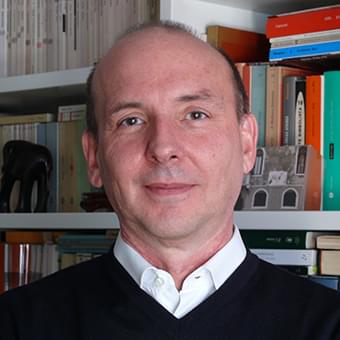
Gabriele Zanini
Research Director, Italian National Agency for New Technologies, Energy and Sustainable Economic Development (ENEA)
Dr. Gabriele Zanini is a physicist. He currently leads the Models and Technologies for Risks Reduction Division of the Sustainability Department of ENEA (Italian National Agency for New Technologies Energy and Sustainable Economic Development), a group of 85 researchers and technicians who deal with air pollution, climate change, hydrogeological risk and anti-seismic technologies.
He was in charge of the project that developed the Italian national integrated modeling system to support policies on air quality and greenhouse gases. He coordinated some "real world experiments" for the characterization of the emissions of vehicles and airplanes powered by different fuels. Throughout his professional experience he has tried to transfer the results of the research into tools for designing effective policies for the reduction of atmospheric pollution.
Director, UK Energy Research Centre (UKERC)

Robert Gross
Director, UK Energy Research Centre (UKERC)
Robert is the Director for the UK Energy Research Centre (UKERC). He is also Professor of Energy Policy and Technology at Imperial College London, where he was the Director for the Centre for Energy Policy and Technology (ICEPT) and the Director of Policy at the Energy Futures Lab. He has extensive teaching and post-graduate training experience.
Robert is a Fellow and Council member of the Energy Institute. He is also Council member and former Chair of the British Institute of Energy Economists (BIEE). Robert is currently a member of the Academic Advisory Panel for Ofgem (2018 to date). He has been a specialist advisor to 3 Parliamentary Select Committees, has extensive engagement with UK policymaking, and has published extensively on energy policy, economics and technological innovation.
Senior Research Advisor, IGES
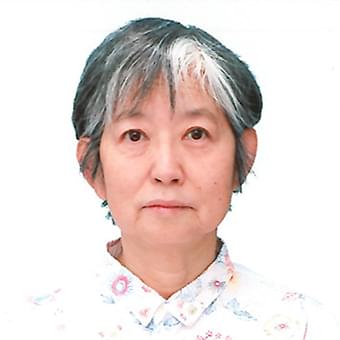
Mikiko Kainuma
Senior Research Advisor, IGES
Dr. Mikiko Kainuma is currently a senior research advisor of IGES. She joined National Institute for Environmental Studies (NIES) in 1977, and since 1990, she has been engaging in the development of Asia-Pacific Integrated Model (AIM), which assesses policy options for stabilizing the global climate, particularly in the Asian-Pacific region. She led the Low Carbon Asia Project from 2009 to 2014. She served as an adjunct professor at Japan Advanced Institute of Science and Technology from 2003 to 2014. Her current research area of interest are in low carbon societies in Asia, energy systems and social development. She has published papers in international journal and books. These include Climate Policy Assessment (2003), Methodologies for leapfrogging to low carbon and sustainable development in Asia (2017), and Post-2020 Climate Action: Global and Asian Perspectives (2017). She received Academic Award by the Society of Environmental Science, Japan (2011), Remarkable Contribution to Science and Technology 2010: NISTEP (2010), and Nikkei Global Environmental Technology Award (1994). She was a Lead Author of Intergovernmental Panel on Climate Change (IPCC) Fourth and Fifth Assessment Report, and IPCC Special Report on 1.5 degrees. She was a Coordinating Lead Author of UNEP Global Environment Outlook 6 (GEO-6). She was selected “55 Japanese women with a sense of mission”, by Forbes Japan (2016).